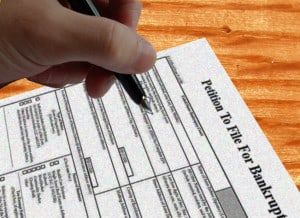Bankruptcy is often seen as a last resort, a safe haven from creditors that exists when all other financial options are exhausted. Medical debts, past due electric bills, business debts, overdue rent,  credit card balances – these debts can usually be discharged, giving a person a new start in life.
credit card balances – these debts can usually be discharged, giving a person a new start in life.
One important exception: debts incurred as a result of a drunk driving conviction. Even after declaring bankruptcy, you will still owe these debts:
- Court fines. Any amount imposed by the court as a drunk driving penalty must still be paid, because money owed to government entities are exempt from bankruptcy protection.
- Restitution. If the court orders that you pay restitution for damages incurred during a DUI incident, whether for property damages, lost wages or other harm, that debt cannot be discharged by bankruptcy.
- Personal injury or death liability. If you owe money as compensation for injury, or are ordered to pay a victim’s medical bills, you remain on the hook for it under any circumstance.
The reason for the harshness of U.S. bankruptcy law on DUI debts is that drunk driving is a criminal action. Because the fines and other costs incurred by a DUI are seen as the result of a willful disregard of the safety of others on the road, they cannot be discharged as other costs are.
Food for thought: not only is a drunk driving conviction expensive, it can bring on debts that follow you to the grave.
